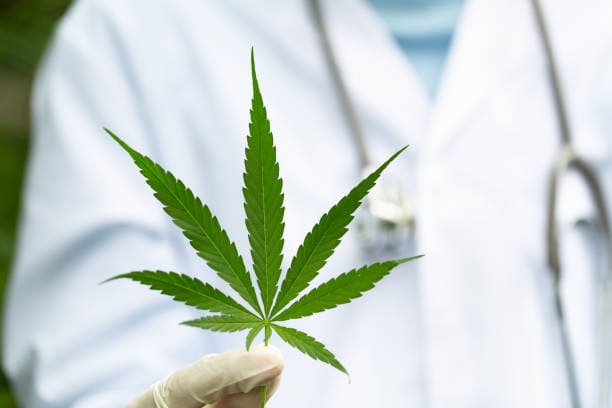Medical marijuana is increasingly recognised for its benefits in managing various health conditions. However, obtaining a medical marijuana card involves specific documentation to meet legal requirements. This guide outlines the essential documents needed, making the process clearer and more straightforward.
Table of Contents
ToggleWhy Is Documentation Important?
Before diving into the specifics, it’s crucial to understand why documentation matters. These records validate your eligibility and ensure compliance with state laws. Having the correct paperwork prevents delays and legal complications.
Proof of Identity
One of the first requirements for a medical marijuana card is proof of identity. States need to verify your identity to confirm your eligibility. Below are commonly accepted forms of identification:
- Driver’s Licence: A valid, unexpired licence from your state of residence.
- State-Issued ID Card: If you don’t drive, a government-issued ID is also acceptable.
- Passport: In some cases, a passport can be used if other forms of ID are unavailable.
Make sure your identification matches your application details to avoid issues.
Proof of Residency
Since medical marijuana laws vary by state, proof of residency is a critical requirement. This ensures you’re applying in the correct jurisdiction. Acceptable documents include:
- Utility Bills: Recent bills, such as electricity or water, with your name and address.
- Lease Agreement: A signed rental or lease agreement showing your residency.
- Voter Registration Card: A government-issued card proving your registered address.
Some states may require more than one form of residency proof, so it’s wise to prepare multiple documents.
Medical Records
To qualify for a medical marijuana card, you need proof of a qualifying medical condition. This is typically done through medical records or physician statements. Here’s what’s usually required:
- Doctor’s Recommendation: A signed document from a licensed physician stating that you have a condition eligible for medical marijuana.
- Health History: Records detailing your diagnosis and treatment history.
- Specialist Reports: If applicable, include additional evaluations from medical specialists.
Some states require the physician recommending medical marijuana to be registered with their medical marijuana program. Check your state’s regulations for specifics.
Application Form
Every state’s medical marijuana program has an official application form. This document collects key information, such as:
- Personal details (name, date of birth, address).
- Medical history related to your qualifying condition.
- Certification from a healthcare provider.
Ensure that all sections are filled out accurately and legibly. Incomplete applications can result in delays or rejection.
Recent Photograph
Most medical marijuana cards include a photo for identification purposes. Guidelines for the photograph are typically similar to those for driver’s licences or passports. Key requirements may include:
- A clear, recent photo of your face.
- Neutral background (usually white or light-coloured).
- Specific size dimensions (check your state’s program for details).
Payment Methods for Fees
Applying for a medical marijuana card often involves fees, which vary by state. You’ll need to provide payment through acceptable methods such as:
- Credit or debit card.
- Money order.
- Personal cheque (where allowed).
Some states offer fee reductions for veterans, low-income individuals, or those on government assistance programs.
Additional Requirements for Caregivers
If you’re applying as a caregiver on behalf of someone else, additional documentation may be necessary. These may include:
- Caregiver Identification: Proof of identity for the caregiver.
- Consent Forms: Documents signed by the patient authorising the caregiver’s involvement.
- Background Check: Some states require a criminal background check for caregivers.
Submitting Your Application
Once you’ve gathered all the necessary documents, submission is the next step. Depending on your state’s requirements, you may need to submit your application:
- Online: Many states offer online portals for faster processing.
- By Mail: Sending your application through postal services.
- In Person: Visiting a designated government office.
Double-check all documents before submission to avoid unnecessary delays.
Common Mistakes to Avoid
To improve your chances of approval, avoid these common mistakes:
- Incomplete Forms: Ensure all fields are filled out.
- Expired Documents: Use only current and valid identification.
- Missing Signatures: Verify that all required signatures are included.
Processing Time
The time it takes to receive your medical marijuana card varies by state. On average:
- Standard Processing: 2 to 4 weeks.
- Expedited Options: Some states offer faster processing for an additional fee.
While waiting, refrain from purchasing or using medical cannabis until you receive official approval.
Wrap-Up
Securing a medical marijuana card requires attention to detail and proper documentation. By gathering proof of identity, residency, medical records, and completing the application form accurately, you’ll streamline the process. Always refer to your state’s specific guidelines for additional requirements or updates.
Reference
https://cannabis.ny.gov/system/files/documents/2022/01/Acceptable_Proof_Requirements.pdf
https://www.marinhhs.org/medical-marijuana-photo-identification-card-application
https://cdphe.colorado.gov/apply-colorado-medical-marijuana-card
https://www.placer.ca.gov/2986/Medical-Marijuana-Card-ID





